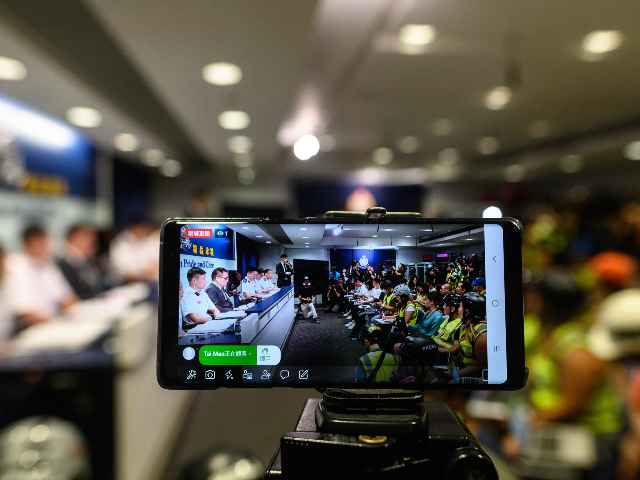China’s Ministry of Culture and Tourism on Thursday suggested tighter controls on live streaming of public performances, including plays, music, and comedy shows.
One of the measures under consideration would require a three-minute delay that gives censors an opportunity to pull the plug if they see the act going in a direction they disapprove of. Another would require live-stream footage to be recorded and stored for not less than 60 days so censors could review it after the broadcast.
The South China Morning Post on Tuesday reported the regulations, currently undergoing a two-week public comment period, were motivated by concerns about “immersive shows” which feature “audience interaction,” plus a general desire to ensure “performances that concern history, ethnicity, and religion” include “correct guidance and healthy content.”
The Chinese public apparently sees these measures as a dismal tightening of the Communist Party’s grip on what little vibrant and provocative entertainment remains to them, although they were more receptive to the ministry’s concerns about obscenity:
“I’ve seen so many movies withdrawn this year, too many songs taken off the shelf, and a band I liked for six years disappearing from many music apps,” one commenter said on the social media platform Weibo.
Weibo commentator Qiao Zhifeng wrote: “If something is delayed for three minutes, can that still be considered real live broadcast?”
At the same time, others said there was a need to clamp down on vulgar content.
Last Tuesday, crosstalk performer Zhang Yunlei apologised on Weibo for making fun of three Peking Opera artists in a skit in May, which included a joke that he bathed with one female artist and scrubbed her back.
Videos of the show were circulated online, prompting criticism of the performance from the Peking Opera Association as well as members of the public.
Another regulatory agency, the Cyberspace Administration of China (CAC), unveiled new policies in December intended to suppress “deepfake” technology, which basically involves using advanced software to swiftly create phony photos and videos without a great deal of human labor or intensive technical knowledge.
The CAC warned deepfakes could “endanger national security, disrupt social stability, disrupt social order and infringe upon the legitimate rights and interests of others,” and introduced requirements for all images generated with artificial intelligence technology to be clearly labeled as fabrications, under threat of criminal indictment for violators.
The deepfake regulations were prompted in part by a popular application called Zao that let users paint their faces onto other people in video clips with only a few mouse clicks. Besides its potential for creating deceptive videos, Zao was criticized for potentially harvesting biometric information from everyone who used it.
China is all in favor of harvesting biometric information, provided only the government does it. Last week, a new requirement was introduced by the Ministry of Industry and Information Technology that requires all mobile phone users to have their faces scanned and their biometrics logged by the government before they can enroll in a new phone plan. Facial recognition is now widely used in China for commerce and security purposes, including face-scan payment systems at some stores, so the new requirement was justified as an anti-fraud measure.
Deepfakes have also come under regulatory scrutiny in the United States, particularly in California, which in October introduced more limited regulations to criminalize the use of fake video in political advertising. Unlike the Chinese regulations, California’s law applies specifically to the use of faked video for political purposes and only takes effect within 60 days of an election.

COMMENTS
Please let us know if you're having issues with commenting.